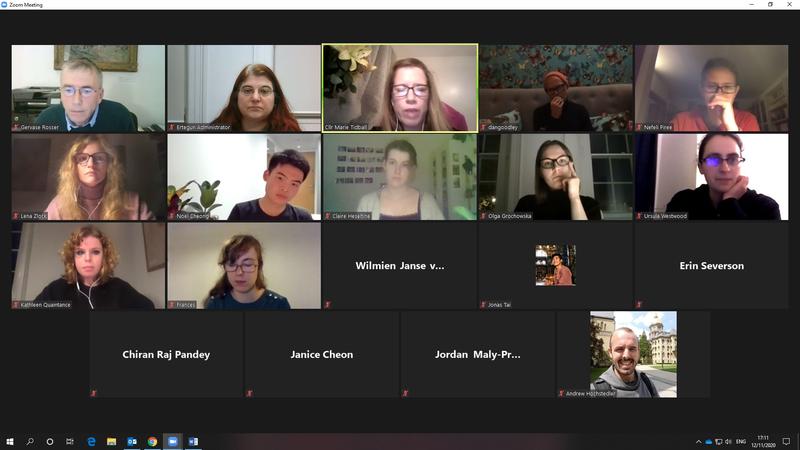Reconsidering (dis)ability can lead to a reconfiguration of monumental societal structures that we may have once considered immutable, including but not limited to the very fabric of time and the very nature of what it is to be human. In this sense, we must view disability studies not as an isolated topic but as a means of re-envisioning the world. Faced with the ongoing tragedy that is the COVID-19 pandemic, which has firmly upended the structures of our everyday lives, rendering them unrecognisable, we may begin to realise that this kind of tragedy is not terribly new. Disabled people have long struggled to be recognised and afforded basic rights. Emergency conditions only make this discrepancy more readily obvious.
Dr Marie Tidball and Dr Dan Goodley graciously joined us to catalyse this paradigm-shift during a virtual conversation held with members of the Ertegun community. As advocates for disabled people, Dr Tidball and Dr Goodley are both acutely aware of the kind of transformations needed to change how we include disabled perspectives in policy, academy, and everyday life. As the founder of the Oxford University Disability Law and Policy Project, Dr Tidball shared her experiences as a policymaker and law expert who is invested in changing the material conditions of disabled people’s lives. She revealed how not only are disabled people more likely to face material complications during a pandemic, but how there are major gaps in virus-related policy which have not accounted for the needs and rights of disabled people. Dr Goodley’s powerful interdisciplinary work uses disability studies to reflect on what it means to be human, and how certain groups have or have not fitted into this totalising definition.

In an era in which our understanding of time and its passing have changed in fundamental ways, it is now necessary to consider what structures of time able-bodied people have taken for granted in the past, and how this moment might provide the impetus to revisit our understanding of time and its segmentation. Dr Tidball called for recognition of ‘disabled time,’ that is, a more flexible system of time which fluctuates according to the diverse needs of variously abled people. Now that complete synchronicity is no longer always required, able-bodied people could finally begin to see how moving towards a disabled time could allow for adaptability and inclusivity.
During the session we also interrogated notions of vulnerability, alternative ways of representing non-normative bodies in media, and productive ways in which one might bring epistemic justice to communities of disabled people and scholars. Dr Goodley’s commitment to recreating definitions of the human, in tandem with Dr Tidball’s positionality of ‘academic activism,’ which they put into practice with stunning efficacy, both proved incredibly valuable to this group of scholars. Within the humanities, our work interacts in varying ways with race, gender, class, and nationality, and it is of utmost urgency that we add disability to this discourse.
Kathleen Quaintance